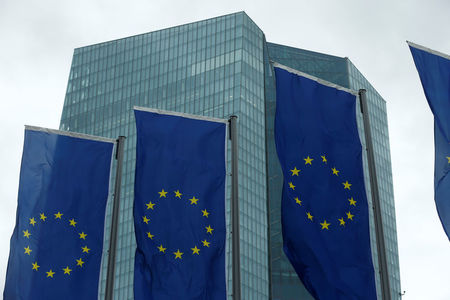
Investing.com – President-elect Donald Trump has already signaled that trade tariffs are likely to be part of his political agenda, but against concerns that the US-EU trade dispute could threaten a new wave of inflation, CTI Argues that tariffs in the eurozone can be monetary at times when the economy is in recession.
“Even if the EU retaliates with reciprocal tariffs, the HICP impact is likely to be modest,” Citi economists said in a recent note.
Imports from the US make up just 10% of the euro area’s goods imports, a quarter of which is energy but are unlikely to be taxed, economists said. With consumption goods making up only 6% of total imported US goods into the eurozone, the import price-to-HICP passthrough is “generally low,” they said.
The prospect of a 10% blanket US tariff on EU goods and additional measures against China, the EU’s largest source of imports, are likely to weigh further on eurozone economic growth at a time when the single economy is already slowing growth. is facing a difficult task to revive. , economists said after cutting Eurozone GDP growth by 0.3%.
“The blow to an already struggling European manufacturing sector could weigh on employment and wages in the tradable sector and beyond,” the economists added.
On the export front, meanwhile, the tariffs are likely to hurt US and Chinese demand for eurozone exports, Citi said, although they have previously benefited from trade diversification as US dependence on China breaks.
A quick look at the impact of tariffs from the previous Trump administration offers clues about the road ahead for the eurozone. The most important fallout for Europe from Trump’s previous trade disputes is likely to be an increase in Chinese import penetration, which has “potentially large-scale disinflationary effects,” the economists said.










